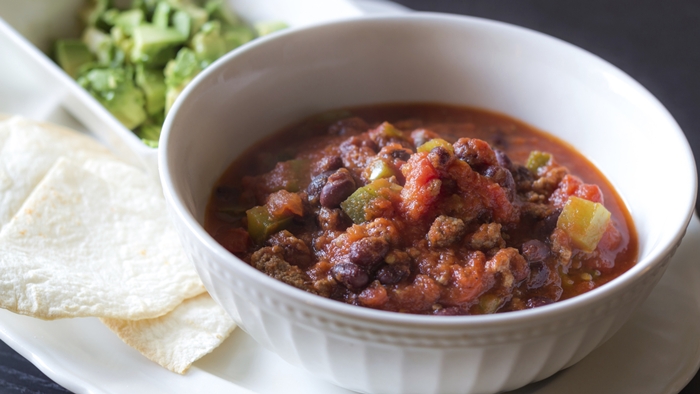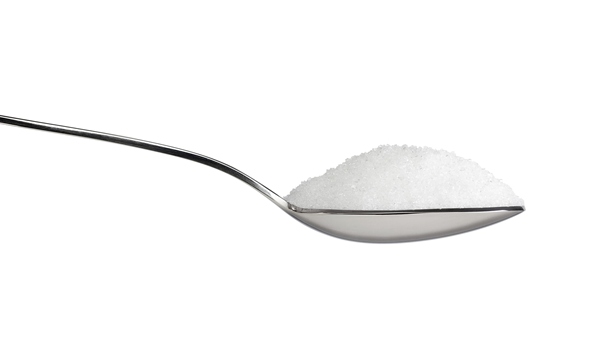
Nothing is more disturbing and distracting than stomach aches after meals, especially if no medical cause is diagnosed. If there is no medical cause related to your post-meal stomach pains, then maybe it’s time to be more mindful of what you are eating.
Usually, such post-meal discomforts are triggered by certain food items consumed such as gluten-based ingredients and dairy products. Hence, one should be well informed of the food items one is allergic to.
A number of things could trigger post-meal stomach aches. The most common reasons for stomach pains after eating are hot or spicy food, food allergies/food intolerance, overeating, gluten intolerance, food poisoning, peptic ulcers, gallstones, blocked blood vessels, lactose intolerance, intestinal obstruction, constipation, and others.
First, figure out what could be the reason in your case and determine the remedy for it accordingly.
That being said, the goal isn’t to determine the reasons and remedies of post-meal stomach pains. The goal is to understand the kind of foods to avoid that could lead to a stomach pains after eating.
Foods to Avoid During Stomach Pain
If you are often vulnerable to stomach aches or digestive problems after meals, then the root of such stomach problems could be some of the food items you eat. Here are a few common food items that may be the reason your stomach hurts after eating:
1. Dairy Products
Milk and other dairy products have lactose. This lactose isn’t easily digestible in some people. When lactose isn’t fully digested, it leads to gastrointestinal issues and the resulting discomfort and stomach pains could last from 30 minutes to 2 hours post the consumption of dairy products.
If you notice a pattern of stomach pains after consuming milk or other dairy products, then chances are there that you might be a lactose intolerant. In such case, avoid all kinds of dairy products.
There is another aspect to this—you may or may not be lactose intolerant and still could suffer from milk allergy. This has a lot to do with beta casein genes (A1 and A2) found in cows.
The A1 gene, which is a result of genetic mutation in cows, is known to cause this allergy. The A2 gene, which was originally present in cows for thousands of years, is healthier than the former and non-allergenic. Nowadays, more and more cows with A2 gene are being bred.
Milk with A1 gene is known to cause health conditions such as autoimmune disorders, eczema, asthma, and so on; However, this cannot be concluded as the topic is still under research.
2. Hot & Spicy Food
Spices have phytochemicals, which are basically chemical compounds naturally present in plants. They are natural anticoagulants and prevent clogging of arteries.
They help improve the digestion process and blood circulation. In fact, if consumed in moderation, they are useful remedies for upset stomach and throat infections such as cough and soreness.
They contain essential oils that are pain relievers—for example, clove oil is used to control dental pain. They are also a rich source of minerals such as manganese, potassium, and iron. So, spices have a lot of health benefits apart from flavor; however, consuming them in excess is bad for your intestine.
Too much of anything is bad and has side effects. You might freely add spices and pepper while cooking to give more flavor to the dish, but take a moment here. Spices and pepper contain a component called capsaicin.
The strong nature of capsaicin could irritate the stomach lining, more so if it is sensitive. So, avoid hot and spicy food to avert unnecessary stomach irritation. However, do not stop consuming spices totally as they are beneficial for your health if consumed in the right way and proportion.
3. Nightshades
These belong to the Solanaceae family of the plant kingdom. Although most of these vegetables and fruits are rich in various nutrients and fiber, they have alkaloids such as solanine, tomatine.
Alkaloids are chemical compounds with nitrogen atoms and are rich in antioxidants; they are known to have cancer-preventive properties.
Tomatoes, pepper, eggplant, green leafy vegetables, and potatoes fall into the category of nightshade vegetables.
However, if consumed in excess, these alkaloids can cause certain health conditions that affect the gastrointestinal system. Certain people who suffer from irritable bowel syndrome and autoimmune disorders have difficulty in digesting such nightshade vegetables and experience stomach pains after consuming these foods.
In spite of these health conditions, you may not want to eliminate these vegetables and fruits entirely from your diet. In that case, you can cook or use them in a particular way.
For instance, the alkaloid content in potato will significantly reduce if you peel off the skin and sprout spots, or bake it rather than boil. Also, it will help if you store potatoes away from sunlight.
These methods of storage, cooking, and consuming can help reduce alkaloid content and in turn their effects on your health.
4. Soda, Coffee, and Tea
Carbonated soda, coffee, and tea are quite acidic in nature. Excess consumption of them could lead to stomach discomfort like feeling bloated, cramping of abdominal muscles, and so on.
While we all know the good effects of tea, too much of it can cause acidity. Also, try to avoid coffee and tea if you already suffer from diarrhea or lactose intolerance.
5. Sugar
The body cannot easily breakdown refined sugar. Sugar can disturb the insulin levels in the blood. Although this isn’t related to stomach pains directly, it could lead to overall uneasiness and heaviness.
Sometimes too many sweets could make you nauseous, too. So keep a watch on your sugar intake.
6. Saturated Fats
Foods like meat, cheese, cream, and butter are rich in saturated fats. Such foods must be taken in moderate quantity as the body takes a longer time to process saturated fat. Otherwise, you might feel bloated and uneasy post meal.
7. Gluten-Containing Food
Gluten is a kind of protein mostly found in wheat and other grains. Some people are allergic to it. So if you often experience stomach irritation after having a meal that included bread or cereal, then perhaps you are allergic to gluten. Skip foods that contain gluten.
8. Alcohol
If you suffer from gastric acidity, then avoid alcohol as it can aggravate the condition. Also, alcohol contains chemicals and sugars that are hard to digest easily. Therefore, avoid it to skip tummy problems.
9. Processed Foods and Fried Foods
Most processed foods do not contain fiber and are are high in starch and sugars. They have trans fats, added chemicals, and preservatives. Also, we do not have information about most of the ingredients mentioned on packs of processed food. There are certain salts in these packaged foods that make you addictive to them.
Fried foods not only lead to weight gain but also acidity because of the excess oil content. You can have fried foods once in a while to satisfy your cravings; however, eating them every day will lead to a number of health issues such as increased cholesterol levels, obesity, hyperacidity, and so on.
So, now that you know the food items to watch out for, map them to your condition. Replace the food items with substitutions in case those food items contain some kind of essential nutrients.
Do not stuff yourself with food and avoid junk food items and foods that are acidic in nature. Also, include some portion of fibers in your meal as they precipitate the process of digestion.
And if you fail to take any kind of precaution, just keep an antacid handy for quick relief!
Related:
- Easy to Digest Foods for an Upset Stomach
- Top 10 Health Benefits of Lemon Tea
- Recipes for 7 Healthy Breakfast Snacks
Sources:
Dr. Marchione, V., “Stomach pain after eating – causes and home remedies,” Belmarra Health web site, June 30, 2016; http://www.belmarrahealth.com/stomach-pain-after-eating-causes-and-home-remedies/, last accessed January 25, 2017
Gardener, A., “9 Foods to Avoid When Your Tummy Hurts,” Health web site; http://www.health.com/health/gallery/0,,20570225,00.html/view-all, last accessed January 25, 2017
“Lactose intolerance and cow’s milk protein allergy,” Scielo web sit;
http://www.scielo.br/scielo.php?script=sci_arttext&pid=S0101-20612016000200179
“Healthy spices nutrition facts,” Nutrition and you web site; http://www.nutrition-and-you.com/healthy_spices.html
“Which foods are classified as “nightshades,” and is it true that foods from this group can potentially contain problematic substances?,” whfoods.org web site; http://whfoods.org/genpage.php?tname=george&dbid=62

















